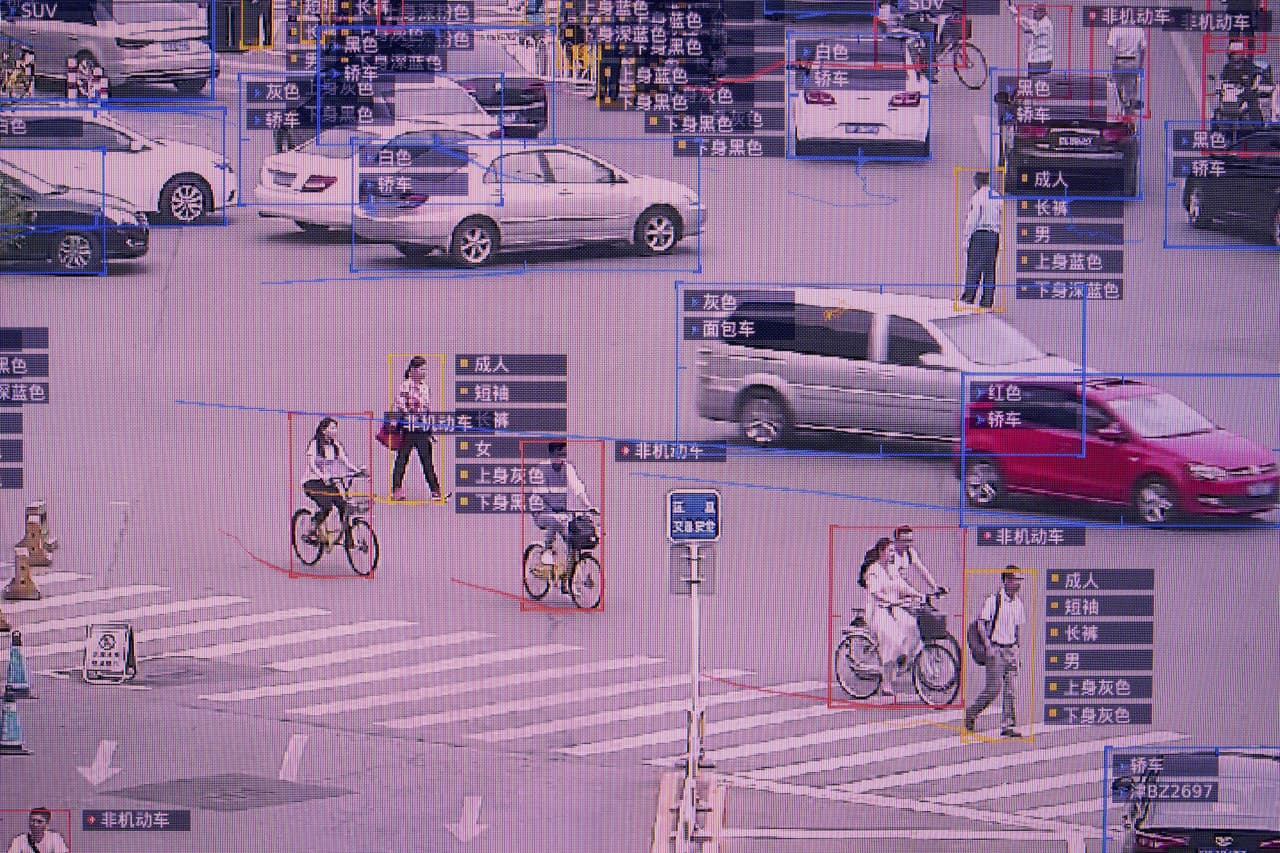
UK minister consulted Chinese AI company amid outcry over Uighur camps
A UK trade minister met representatives of a Chinese facial recognition company during an outcry over its alleged involvement in the repression and internment of China’s Muslim minority.
Graham Stuart MP held the meeting with SenseTime in June 2019 to discuss artificial intelligence and data in higher education, despite reports that the company’s products had been used in Xinjiang province, where at least a million Uighur Muslims have been detained without trial.
At the time, US lawmakers were urging investors to stop putting money into Chinese facial recognition companies, on the grounds that their technologies are being used to commit human rights abuses.
SenseTime, described as the “world’s most valuable AI start-up”, is one of eight Chinese companies – including Hikvision, Magvii and Yitu – that have since been targeted by punitive export controls in the US for acting “against the foreign policy interests of the United States”. The rules, introduced in October, mean that exports of components to those companies will be “presumptively denied” or go through a case-by-case review.
Two weeks before the meeting with Stuart last year, BuzzFeed reported that Chinese authorities were detaining Uighurs and other ethnic minorities in “political reeducation camps ... identifying them, in part, with facial recognition software created by two companies: SenseTime, based in Hong Kong, and Beijing’s Megvii”.
Only days before the meeting, the Financial Times reported that “both SenseTime and Megvii are Chinese suppliers of equipment to officials in Xinjiang, where minorities of mostly Uighurs and other Muslims are being tracked and held in internment camps” and that Microsoft had decided to delete a training set of 10m facial images that SenseTime had used in its research.
SenseTime said: “SenseTime has no contracts in Xinjiang. We are not aware of any application of our technologies in the region. Regarding the US entity list, we are working closely with all relevant authorities to fully understand and resolve the situation.”
The Department for International Trade confirmed that Stuart met with SenseTime “to promote UK trade and investment” and also said that “the UK government continues to raise its concerns about the human rights situation in Xinjiang directly with the Chinese government and businesses involved”.
 A complex in Xinjiang, China, that is believed to contain a re-education camp for Uighur Muslims
Getty Images
A complex in Xinjiang, China, that is believed to contain a re-education camp for Uighur Muslims
Getty Images
Its disclosure that the meeting concerned AI and “higher education” points to a roster of products advertised on SenseTime’s website. These include a sign-in system which “helps to prevent cheating during exams” and an “entertainment system” that uses facial recognition to encourage students to smile more.
The company also offers a “smart campus” system using “human image visualization, refined service management, visualized data management and the efficient management of people and vehicles ... [which] enables an all-around, visualized and controllable management of campus, and establishes a campus security system that integrates management, prevention, and control”.
Privacy and rights campaigners expressed alarm. “We sincerely hope Graham Stuart used his meeting with SenseTime to convey his deep concern over the alleged use of their technology in mass surveillance operations and ethnic persecution in China. However, we doubt it,” Silkie Carlo, of Big Brother Watch, told The Bureau. “We would urge the minister to be completely transparent about the content of this meeting and the government’s dealings with the company.”
UK officials have been pushing for closer trade ties with China, which is the UK’s largest trade partner outside Europe and the USA. Trade between the two countries has more than doubled in the last decade, according to a British government website, hitting £70bn in the last financial year.
Got a Story?
We welcome tip-offs from the public and we always protect our sources
Find out how to work with usStuart’s meeting with SenseTime took place during London tech week. Two months later, in August, the Department for International Trade led the “largest ever British delegation” to the Smart China Expo, a trade fair in Chongqing focusing on AI and big data technology.
Britain’s positive stance on Chinese tech has set it apart from the US, with Downing Street confirming it will allow the telecommunications company Huawei to provide infrastructure for British 5G mobile networks. This has been strongly opposed by US security officials, who have threatened to limit British access to US intelligence-sharing if a deal goes through.
Header image: A demonstration of SenseTime's pedestrian and vehicle recognition system. Credit: Bloomberg via Getty Images




